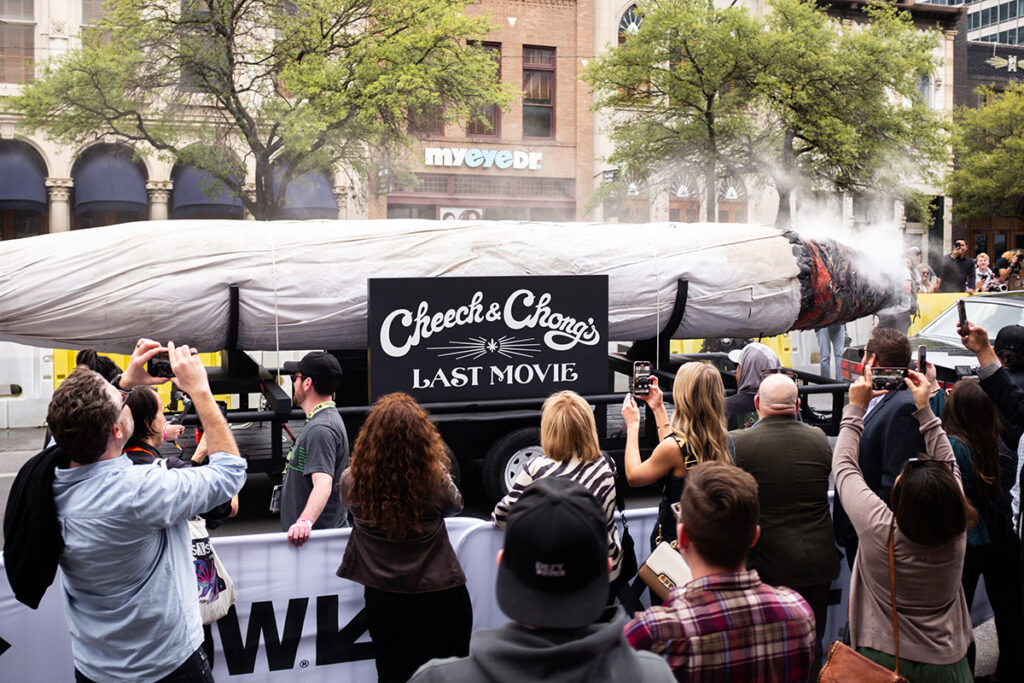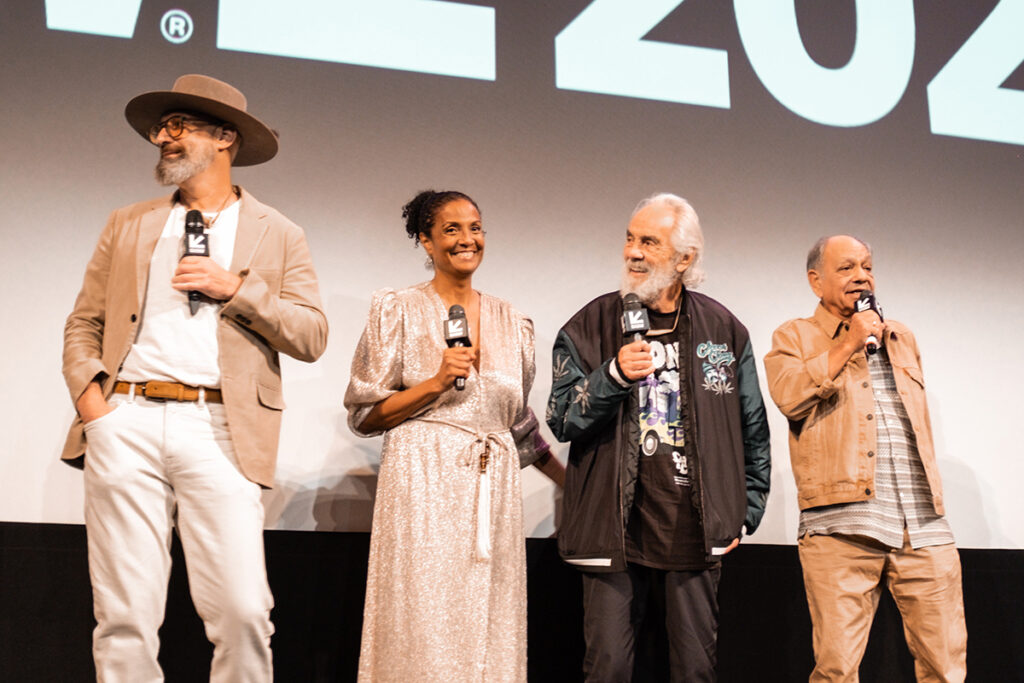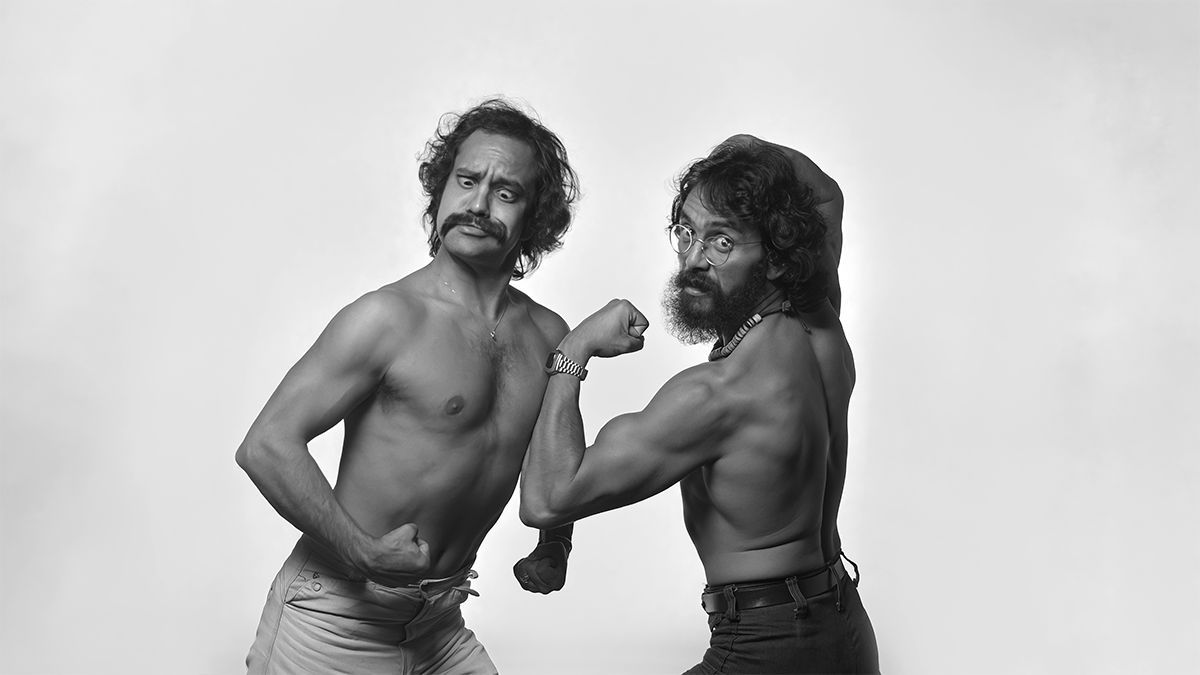It’s no surprise that the comedic duo, Cheech and Chong, arrived at the world premiere of their documentary Cheech & Chong’s Last Movie with a blunt longer than the car it was attached to. Cheech Marin and Tommy Chong have been making us laugh with their stoner comedy for over 50 years, but Cheech & Chong’s Last Movie reveals their more personal sides, sharing the beginnings that led them to becoming the iconic pair.
Marin and Chong approached director David Bushell about a reunion movie, but once that idea fell through, the next obvious choice was a documentary. As Cheech and Chong drive through a long stretch of road in the middle of the desert, they reflect on the early years of their careers with the documentary showing us archival photos, interviews, and animated reenactments. Cheech & Chong’s Last Movie also doesn’t shy away from the not-so-pretty truths, such as Chong’s extramarital affair that resulted in him raising two families simultaneously. But mostly, it’s a hilarious and charming story of the duo’s upbringing, what inspired their comedy style, and how they came to meet in Vancouver.
“What Dave [Bushell] did was amazing,” Chong said at the post-screening Q&A at the SXSW Film Festival. “He got inside us somehow. He got inside of our hearts. Because it’s not just about making people laugh. It’s about respecting each other’s background and who we came from and why we’re here.”

In the film, Chong and Marin shared what it was like growing up as Chinese-Canadian and Chicano respectively, and the racism they endured. Chong said that being discriminated against made him sad, but it also gave him knowledge. They used this knowledge to find their comedic voice.
“When Cheech and I used to go to different clubs, they didn’t know what to think of us,” Chong said.
Chong’s music career with multiple touring bands, including Bobby Taylor & the Vancouvers, led him to running Shanghai Junk, a strip club where his improv group, City Works, also performed. Marin moved to Vancouver to avoid the draft for the Vietnam War and joined the group. When City Works disbanded, they formed “Cheech & Chong” and moved to Los Angeles to perform at the clubs there. Instead of going with Marin in the duo’s name, he instead used the nickname given to him by his uncle, Cheech, short for “chicharron,” to give their name a ring to it.
“See, we never intended really to be comedians,” Chong said at the Q&A. “We were actors and then we thought, oh, we can go on stage and do this. So we did it.”
The pair eventually entered into the studio to record comedy albums, which were produced by Lou Adler, who later went on to direct their first feature film, Up in Smoke. While the film came to be a success, the documentary shows Chong struggling with Adler for creative control and for both stars to reap the financial rewards after the film’s release. Cheech & Chong stopped touring while they were filming and were only given $50,000 to split from Up in Smoke, despite the film grossing $104 million. Chong went on to direct the second film, which didn’t solve their problems. The duo fought each other over the creative decisions, a wedge forming between them.

What eventually triggered their separation in the late ‘80s was a music video Marin produced for his song “Born in East L.A.,” based on Bruce Springsteen’s “Born in the U.S.A.” The success of the song led to a film of the same name, but Marin starred in it without Chong.
“Why are we dwelling on it?” Chong asks Marin during the documentary. “Let it go.”
Cheech & Chong’s Last Movie reminds us that despite their disagreements, these prolific stoners complement each other like yin and yang. The comedy between these two guys works because they are more than just best friends. They’re brothers.
“That’s part of it. We are brothers and you got your brother’s back in the end, no matter what,” Marin said.
Cheech & Chong teased at the premiere that the documentary is probably their last movie as these personas, but a biopic is in the works, directed by Kristian Mercado. When pressed for more details, Chong didn’t reveal much except that they have really handsome people playing them and that, “we’re going to keep the Cheech & Chong legacy alive for long as we can.”

